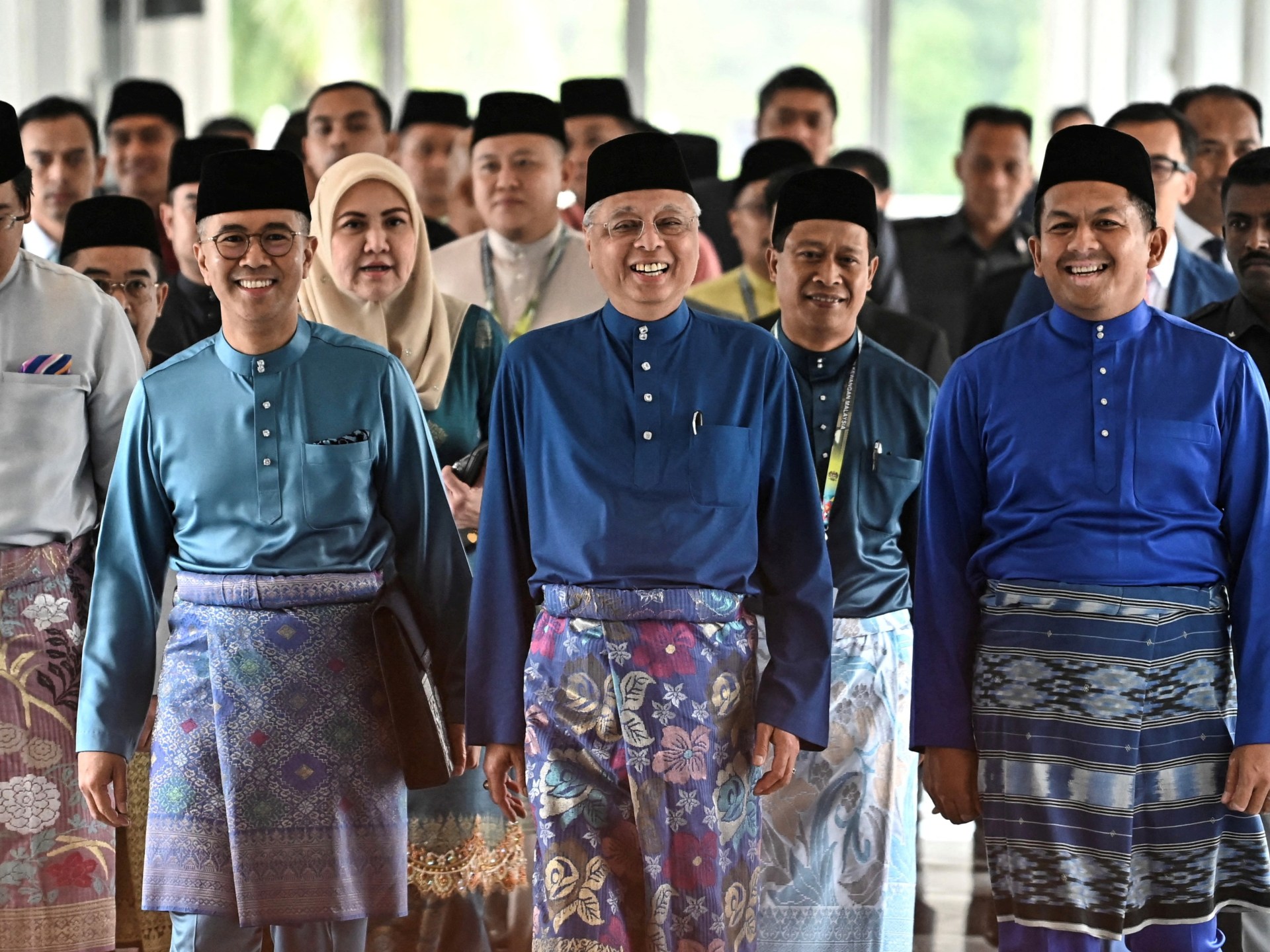Kuala Lumpur
- Malaysian Prime Minister Ismail Sabri's government registered the shortest term in the country's history, after announcing the dissolution of Parliament, paving the way for early elections within 60 days, as stipulated by the constitution.
The announcement of the dissolution of Parliament was expected and surprising at the same time.
It is expected due to the pressure exerted by the leadership of the "United Malay National Organization" party, known for its acronym (AMNO), on Prime Minister Ismail Sabri, one of the party's deputy chairmen.
As for the surprise in this, because the dissolution of Parliament came against the desire of King Abdullah, Ra’iyat al-Din al-Mustafa Billah Shah, and ignored objective indicators that require delay, such as putting forward the annual budget in Parliament and not waiting for its discussion and approval, and holding elections during the monsoon season, which is usually accompanied by floods.
The king criticized the country's unstable political system, and expressed his dissatisfaction with the dissolution of Parliament, saying that he "has no other choice."
The king in the corner
It was remarkable that the King - before receiving the Prime Minister last Thursday morning - visited the Meteorological Department and the Flood Warning Center, to verify the readiness of the competent departments to confront the threat of floods with the onset of monsoon rains. He was accompanied during that visit by 3 ministers who knew their opposition to organizing early elections.
The leadership of the Amnu Party - the largest of the ruling coalition parties - had assigned the prime minister to meet with the king, to request the dissolution of Parliament as soon as possible, but Thursday's meeting ended without any indication of that, and the prime minister returned to meet him again two days later and obtains approval from him to dissolve Parliament. Of the powers of the King on the recommendation of the Prime Minister.
According to the parliamentary system in force in Malaysia, the king's authority is constitutional and not executive, but he can refuse a request to dissolve parliament if he is not satisfied with its justifications.
The King did not want to dissolve Parliament, based on a letter - sent to the palace by ministers representing one of the pillars of the ruling coalition - advising him not to agree to this, in addition to the arrival of the flood season and the discussion of the budget, as well as the double costs due to the fact that the elections for the central parliament did not coincide with the elections for the legislative councils in the states.
However, given the thorny files of the king with the government, he found himself obliged to respond to the decision of the leadership of the Amno party, according to what was reported by - to Al Jazeera Net - well-informed sources in the circles of power, especially since the former king was forced to step down in 2018 under pressure from the government.
Between prison and power
Last September 23 was a turning point for the leadership of the Amnu party, as it was the day that former Prime Minister Najib Abdul Razak was sentenced to prison after the Federal Court confirmed his sentence on corruption charges, and this sent a warning to all politicians accused of similar corruption cases.
Although his party leads the ruling coalition, party leader Zahid Hamidi appeared more determined than ever to speed up the elections, in order to avoid the fate of his predecessor.
Many political analysts - especially those affiliated with the opposition - have seen that early elections serve those accused of corruption cases, hoping to change the political equation, and the possibility of changing the public prosecutor who has the power to drop cases in the courts, knowing that the prosecutor according to the judicial system works according to the recommendations of the government.
Closed circles in the Amno party believe that the 12-year prison sentence against Najib Abdel-Zaraq limited the conflict between party leader Zahid Hamidi and Prime Minister Ismail Sabry. and party politics, while Ismail Sabry believes that continuing in the position is an acquired right.
The way out of the crisis of confidence that engulfed the leadership of Amno was to flee forward by accelerating the elections, and entering into another marathon to rearrange the cards within the party and its allied parties.
The impasse of the opposition
On the other hand, it seemed strange that the opposition refused to dissolve parliament and call for early elections, and a number of its leaders attributed their refusal to dissolve parliament to the fact that it would only serve those accused of corruption from the leadership of Amno, which was confirmed to Al Jazeera Net, Ahmed Fadel Fahmy, representative of the People’s Justice Party in the dissolved parliament.
As for the Democratic Action Party's advisor, Lim Kit Siang, he went so far as to consider that the goal of speeding up the elections was the release of Najib Abdul Razak.
Fahmy adds that the opposition "Alliance of Hope" is committed to the understanding it reached with the government in September 2021, which was recommended by the king in order to stabilize the political system, after the Corona pandemic and economic decline.
The opposition avoids delving into the disputes that caused the overthrow of the Hope Alliance government after 22 months of the May 2018 elections, and the splits that have prevailed in its parties since the fall of its government in February 2020.
Malaysia has witnessed 3 governments in one electoral period, and the head of the party that leads the ruling coalition is not the prime minister, which is a precedent in Malaysian political history, and an indication of the weakness of coalition governments.
Many observers fear that the outcome of the upcoming elections will lead to more partisan fragmentation, after Malaysia called the era of one-party rule in the previous elections.

